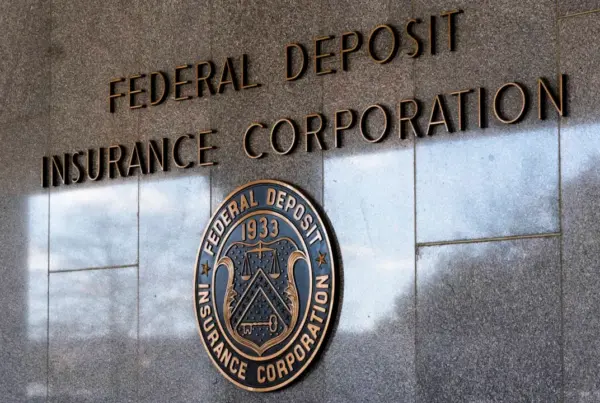FDIC’s Proposed Rule on Brokered Deposits: Key Insights for Financial Institutions
Introduction
On [insert date], the Federal Deposit Insurance Corporation (FDIC) published a proposed rule aimed at revising the regulatory framework governing brokered deposits. This initiative is significant as it seeks to address evolving market conditions and the complexities introduced by financial technology (fintech) firms in the deposit landscape. The proposed changes build upon previous regulations and amendments, notably those outlined in Section 29 of the Federal Deposit Insurance Act, which has historically governed brokered deposits. At the core of this regulatory action is the concern about potential risks that certain deposit arrangements may pose to the stability of insured depository institutions.
Key Regulatory Changes & Analysis
Expansion of the Definition of Deposit Broker
The proposed rule broadens the definition of a deposit broker, reflecting shifts in deposit placement within the financial services industry.
- Previous Definition: Under the existing regulations, a deposit broker was primarily defined as an entity soliciting deposits from the public to place with banks.
- New Definition: The updated definition encompasses a broader range of entities, especially those using digital platforms to facilitate deposit placements.
New Registration Requirements
The FDIC’s proposal introduces mandatory registration for entities classified as deposit brokers.
- Registration Process: Entities must register with the FDIC to operate as deposit brokers, enhancing regulatory oversight.
- Compliance Timeline: Affected parties must complete the registration process within [insert specific timeframe].
Enhanced Reporting Obligations
The proposed rule imposes new reporting requirements on banks and deposit brokers to improve transparency.
- Data Submission: Financial institutions must submit detailed reports on brokered deposits, including their sources and characteristics.
- Reporting Frequency: The FDIC will determine the report frequency, possibly increasing compliance costs for institutions.
Impact on Financial Institutions
The regulatory changes will significantly impact banks, fintech companies, and other financial entities engaged in deposit placement.
- Increased Compliance Burden: Institutions will face heightened compliance obligations, necessitating operational adjustments and potential legal consultations.
- Market Dynamics: The changes may alter competitive dynamics in the deposit market, particularly impacting smaller banks relying on brokered deposits for funding.
Legal and Industry Implications
The proposed regulatory changes present several compliance challenges and potential legal risks for affected businesses:
- Compliance Costs: Financial institutions may incur substantial compliance costs, including technology investments and personnel training.
- Regulatory Risks: Non-compliance could lead to FDIC enforcement actions, including fines and restrictions on deposit-taking activities.
- Litigation Risks: The broader definition of deposit brokers may prompt legal challenges from entities disputing their classification under the new rule.
Recommended Actions & Compliance Strategies
Affected parties should take proactive measures to ensure compliance with the new regulations:
- Review and Update Contracts: Financial institutions should review existing agreements with deposit brokers to ensure alignment with new definitions and requirements.
- Prepare for Registration: Entities qualifying as deposit brokers must begin the registration process promptly to meet compliance deadlines.
- Engage Legal Counsel: Consulting with legal experts specializing in financial regulations can help navigate the new requirements’ complexities.
Public Comments
The FDIC is accepting public comments on the proposed rule until [insert deadline]. Stakeholders are encouraged to participate to voice their concerns or support for the changes.
Conclusion & Next Steps
The FDIC’s proposed rule on brokered deposits represents a pivotal shift in the regulatory framework for financial institutions. Key insights include the expanded definition of deposit brokers, mandatory registration, and enhanced reporting obligations. The implementation timeline is expected to unfold over the next [insert timeframe], with potential legal challenges anticipated as stakeholders adjust to the new regulatory landscape. Financial institutions should remain vigilant and responsive to these developments to mitigate risks and ensure compliance. As the regulatory environment evolves, further updates from the FDIC may be forthcoming, demanding ongoing industry attention.


